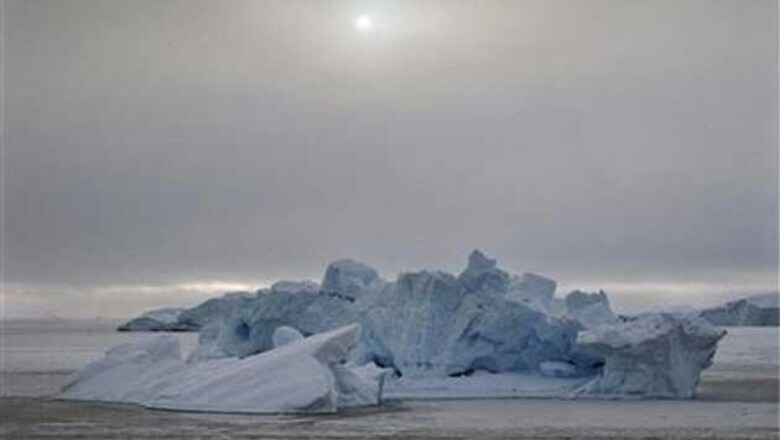
views
London: The complete melt of the Greenland ice sheet could occur at lower global temperatures than previously thought, a study in the journal Nature Climate Change showed on Sunday, increasing the threat and severity of a rise in sea level.
Substantial melting of land ice could contribute to long-term sea level rise of several meters, potentially threatening the lives of millions of people.
"Our study shows that a temperature threshold for melting the (ice sheet) exists and that this threshold has been overestimated until now," said scientists at the Potsdam Institute for Climate Impact Research and the Universidad Complutense de Madrid, who used computer simulations of the ice sheet's evolution to predict its future behavior.
A complete ice sheet melt could happen if global temperatures rose between 0.8 and 3.2 degrees Celsius above pre-industrial levels, with a best estimate of 1.6 degrees, the scientists said.
Previous research has suggested the ice sheet could melt in a range of a 1.9 to 5.1 degree temperature rise, with a best estimate of 3.1 degrees.
One-twentieth of the world's ice is in Greenland, which is about a quarter of the size of the United States and about 80 percent of it is covered by the ice sheet. If it all melted it would be equivalent to a 6.4 meter global sea level rise, previous research has shown.
"If the global temperature significantly overshoots the threshold for a long time, the ice will continue melting and not regrow - even if the climate would, after many thousand years, return to its pre-industrial state," said team leader Andrey Ganopolski at the Potsdam Institute for Climate Impact Research.
Today, global warming of 0.8 degrees has already been recorded.
"The more we exceed the threshold, the faster it melts," said Alexander Robinson, lead-author of the study.
If the world takes no action to limit greenhouse gas emissions, the earth could warm by 8 degrees Celsius.
"This would result in one fifth of the ice sheet melting within 500 years and a complete loss in 2,000 years," he said.
"This is not what one would call a rapid collapse. However, compared to what has happened in our planet's history, it is fast. And we might already be approaching the critical threshold.
If temperature rise is limited to 2 degrees Celsius, a complete melt of the ice sheet could happen in 50,000 years, the study found.




















Comments
0 comment